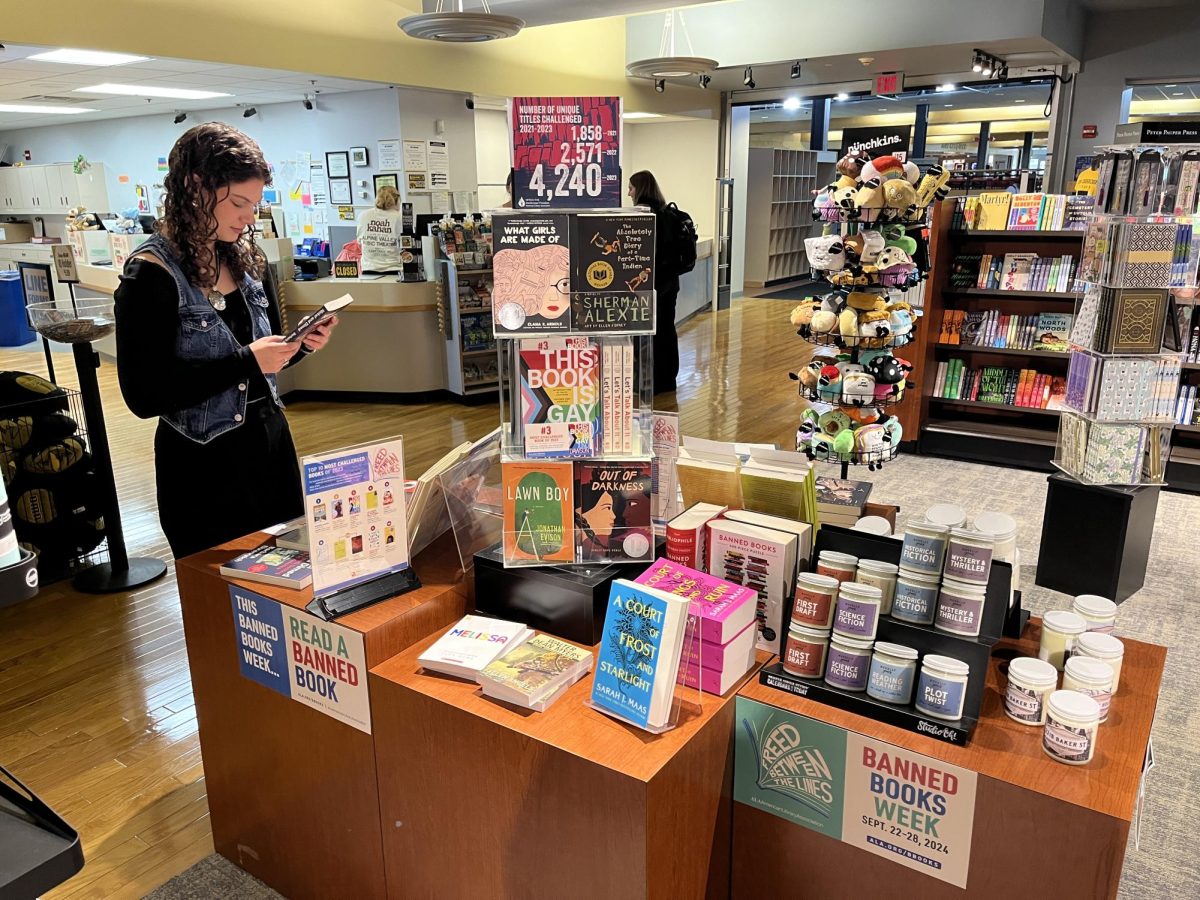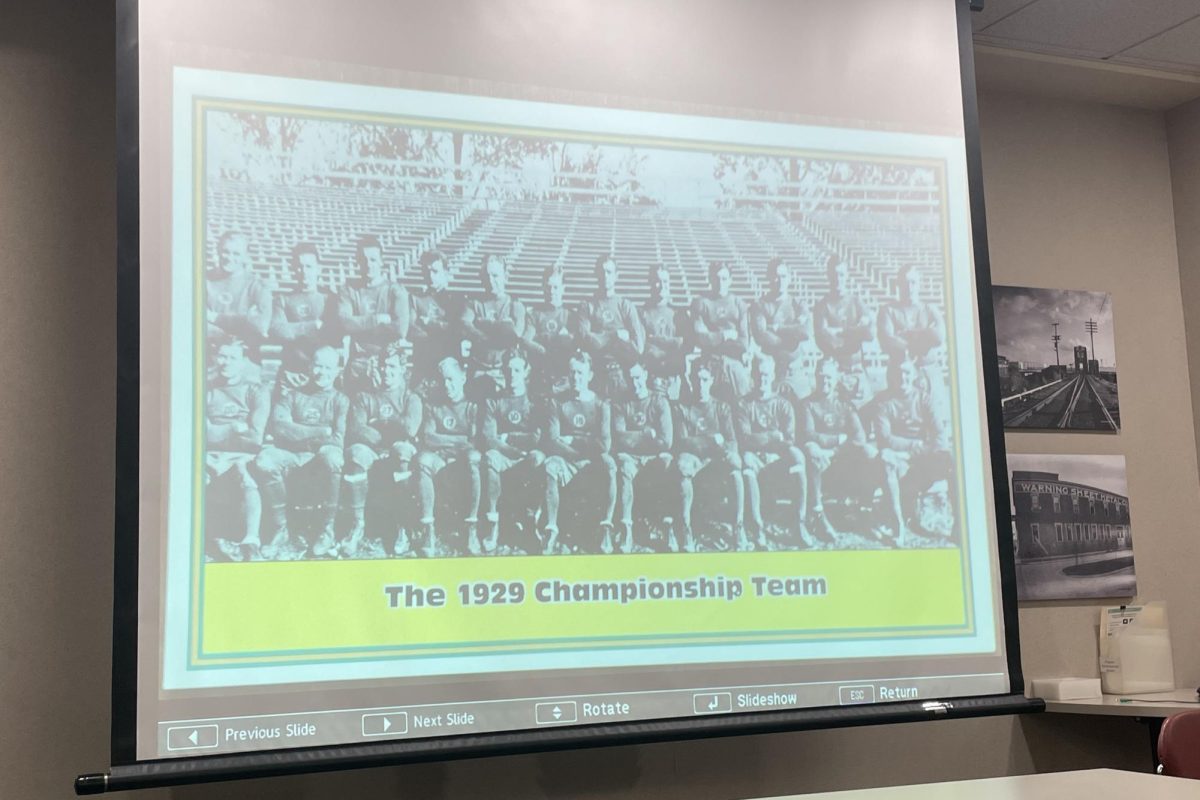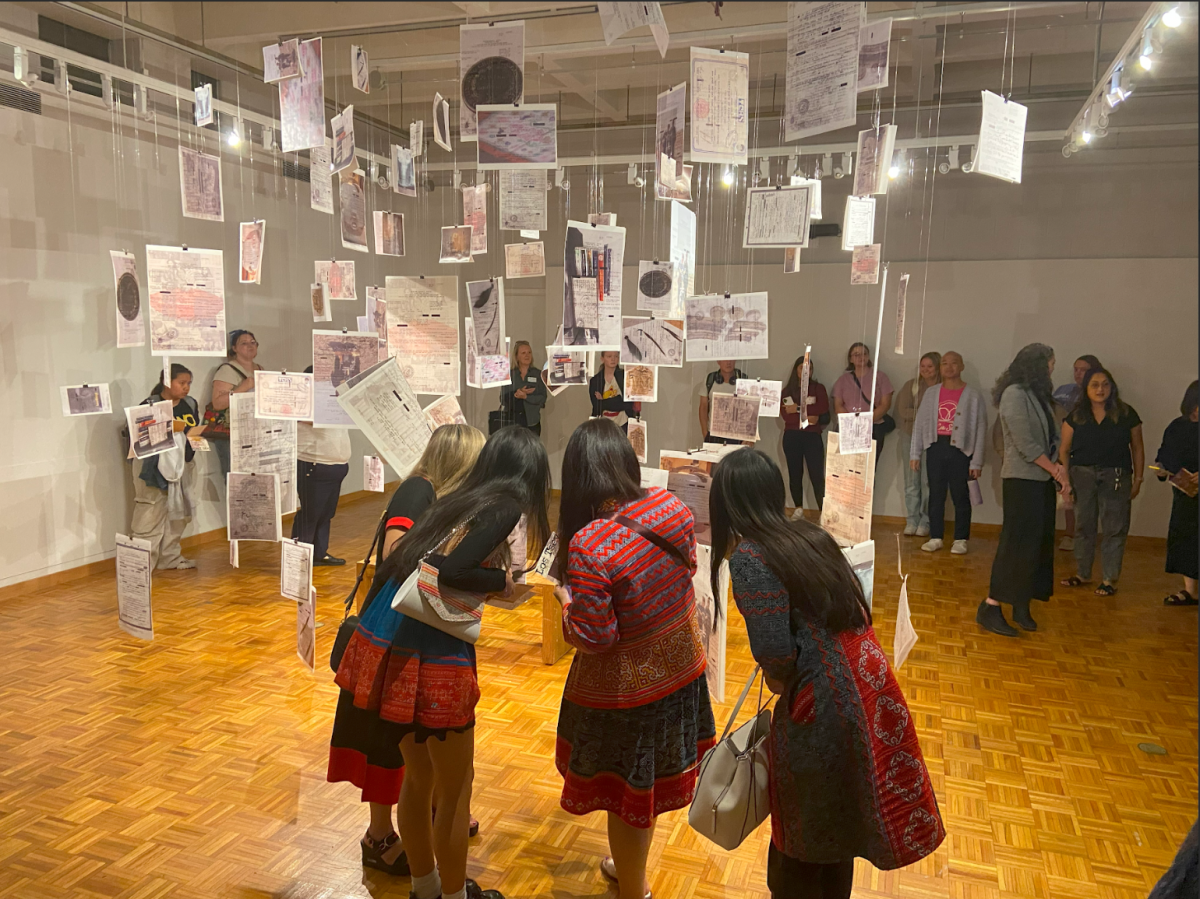Book banning – it’s been a hot topic since 2021, when Republican politicians began a wild spread campaign targeting books containing conversations about gender identity, sexuality and race.
Sept. 22-28 is Banned Books Week, and UW Oshkosh’s University Books & More is celebrating with a banned books display.
“This is the second year the bookstore has been actively promoting Banned Books Week, using the graphics and marketing campaign offered by the American Library Association,” Emily Selk Loper, the trade buyer for the bookstore and curator for Banned Books Week, said.
Loper said it’s hard to determine whether or not the promotion is largely popular amongst students, because so many of the books are extremely popular anyway.
“We’re hoping the bookmark giveaway this year will draw in some people who might not usually shop with us,” Loper said.
Though banned books have been getting pushback across the country, Loper said she hasn’t heard anything negative about the display – a student employee of the bookstore agreed.
“People really like this kind of thing,” the student said. “It seems to draw their attention, lots of people go over and look at it.”
“I have never heard any direct complaints or had any pushback from institutional leadership,” Loper said. “If anyone has complained to our cashiers or other staff, they have not passed it along.”
In 2023, the ALA found that 4,240 unique book titles were targeted for censorship and 1,247 demands had been filed asking for censorship of library books, materials and other resources.
“So many books are being challenged in libraries and public schools right now,” Loper said. “I think it’s important to highlight these titles so people who may not have been paying attention can see whose voices and perspectives are being pushed aside, and how these very normal and relatable stories are being demonized.”
Loper’s personal favorite banned books are “The Left Hand of Darkness” by Ursula K. Le Guin (banned for its exploration of gender) and “The Handmaid’s Tale” by Margaret Thatcher (banned for its sexual content, offensive language and being unsuited to the age group).
“I think the most ironic part of the current book challenges is how few of the people challenging these books have even read them,” Loper said. “If more people read outside of their own experiences, our society would probably be a better and more tolerant place.”










